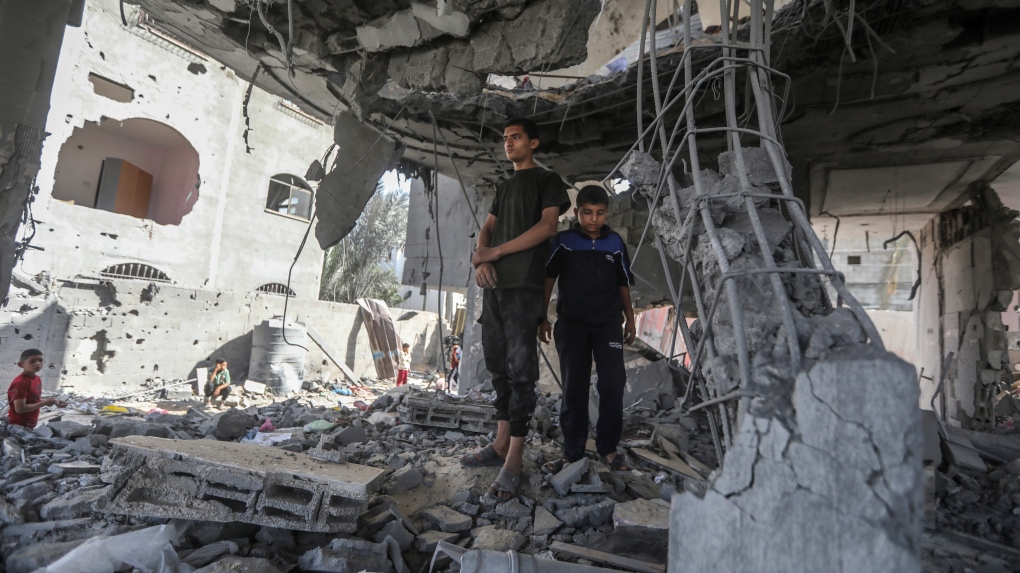GENEVA –
An Israeli incursion in Rafah would put the lives of hundreds of thousands of Gazans at risk and be a huge blow to the aid operations of the entire enclave, the U.N. humanitarian office said on Friday, as the World Health Organization announced contingency plans for an incursion.
Israel has repeatedly warned of an operation against Hamas in the southern Gaza city of Rafah, where around a million displaced people are crowded together, having fled months of Israeli bombardments triggered by Hamas fighters’ deadly cross-border attack on Oct. 7.
“It could be a slaughter of civilians and an incredible blow to the humanitarian operation in the entire strip because it is run primarily out of Rafah,” said Jens Laerke, spokesperson for the U.N. humanitarian office (OCHA), at a Geneva press briefing.
Israel has said it will work to ensure the safe evacuation of civilians from Rafah. The United States has long said it cannot support an assault on Rafah by its ally Israel unless there is a comprehensive plan to protect civilians.
Israel has given Washington some preliminary information, said a U.S. official, speaking on condition of anonymity, but “we haven’t seen a full plan, nothing that would give us the confidence we’re looking for.”
A second U.S. official, speaking on condition of anonymity, said the Israeli proposal outlining the provision of shelter, food and evacuation routes “needs more work.”
Aid operations in Rafah include medical clinics, warehouses stocked with humanitarian supplies, food distribution points and 50 centres for acutely malnourished children, Laerke said.
OCHA would do everything possible to ensure aid operations continued, even in the event of an incursion, and was studying how to do that, he added.
A World Health Organization official said at the same briefing that a contingency plan for Rafah had been prepared, which included a new field hospital, but said it would not be enough to prevent a substantial rise in the death toll.
Already, more than 34,000 Palestinians have been killed in nearly seven months of conflict, according to Gaza’s health ministry.
“I want to really say that this contingency plan is a band-aid,” said Rik Peeperkorn, WHO representative for the occupied Palestinian territory via video link. “It will absolutely not prevent the expected substantial additional mortality and morbidity caused by a military operation.”
Other preparations include pre-positioning medical supplies at hospitals further north in case Rafah’s three hospitals become non-functional, as has happened multiple times in the seven-month conflict due to Israeli raids and bombings.
WHO data shows that just a third of the strip’s 36 pre-war hospital are partially operational. Israel accuses Hamas of using hospitals for military purposes and says its operations against them have been justified by the presence of fighters. Hamas and medical staff deny the allegations.
Peeperkorn added that he was “extremely concerned” that any incursion would close the Rafah crossing between Gaza and Egypt which is currently being used to import medical supplies.
“We are pushing and lobbying that, whatever happens, that it remains open,” he added, saying WHO had raised this issue with Israeli authorities.
(Reporting by Emma Farge, Additional reporting by Steve Holland and Jonathan Landay in Washington; Editing by Rachel More, Alex Richardson and Cynthia Osterman)







